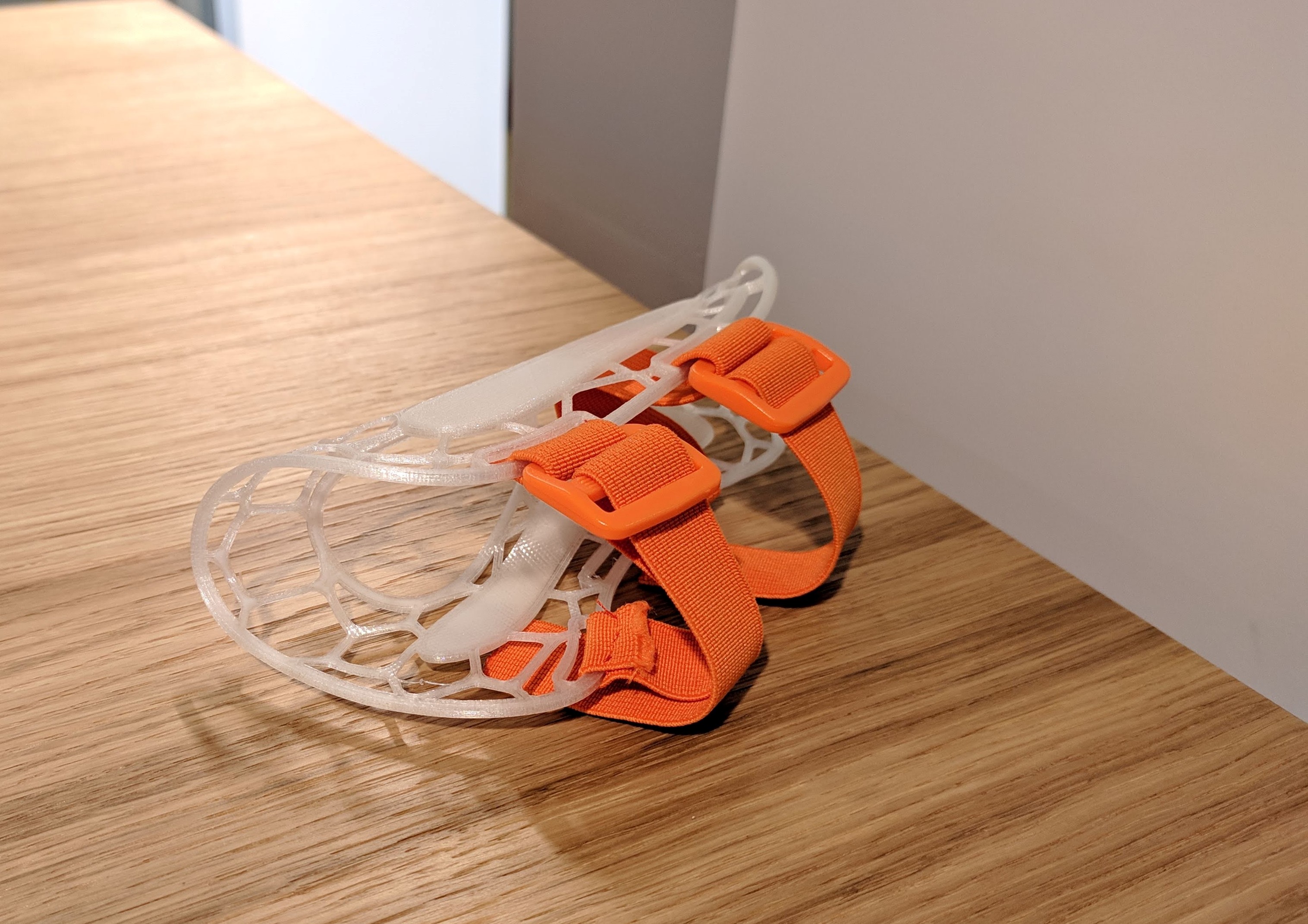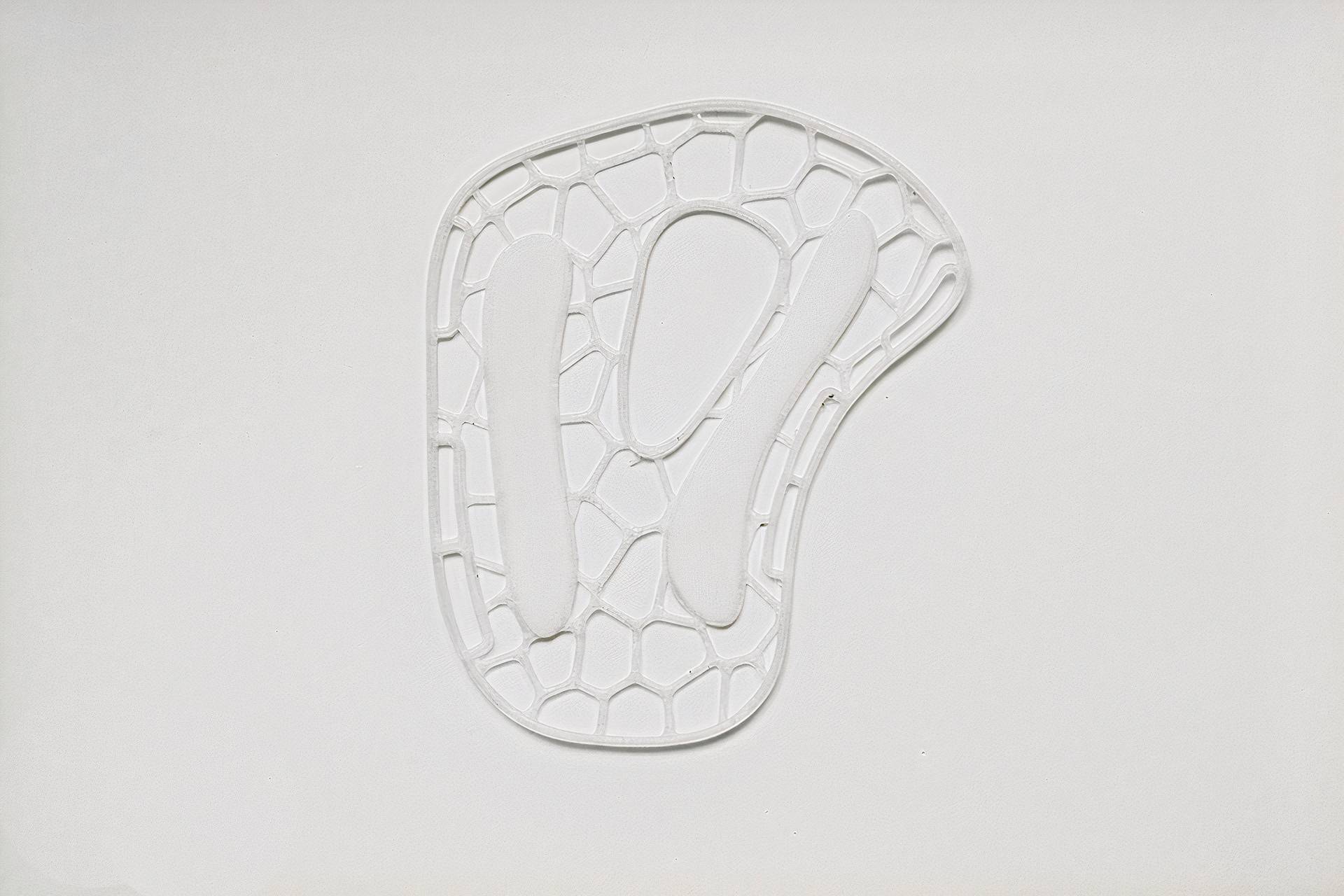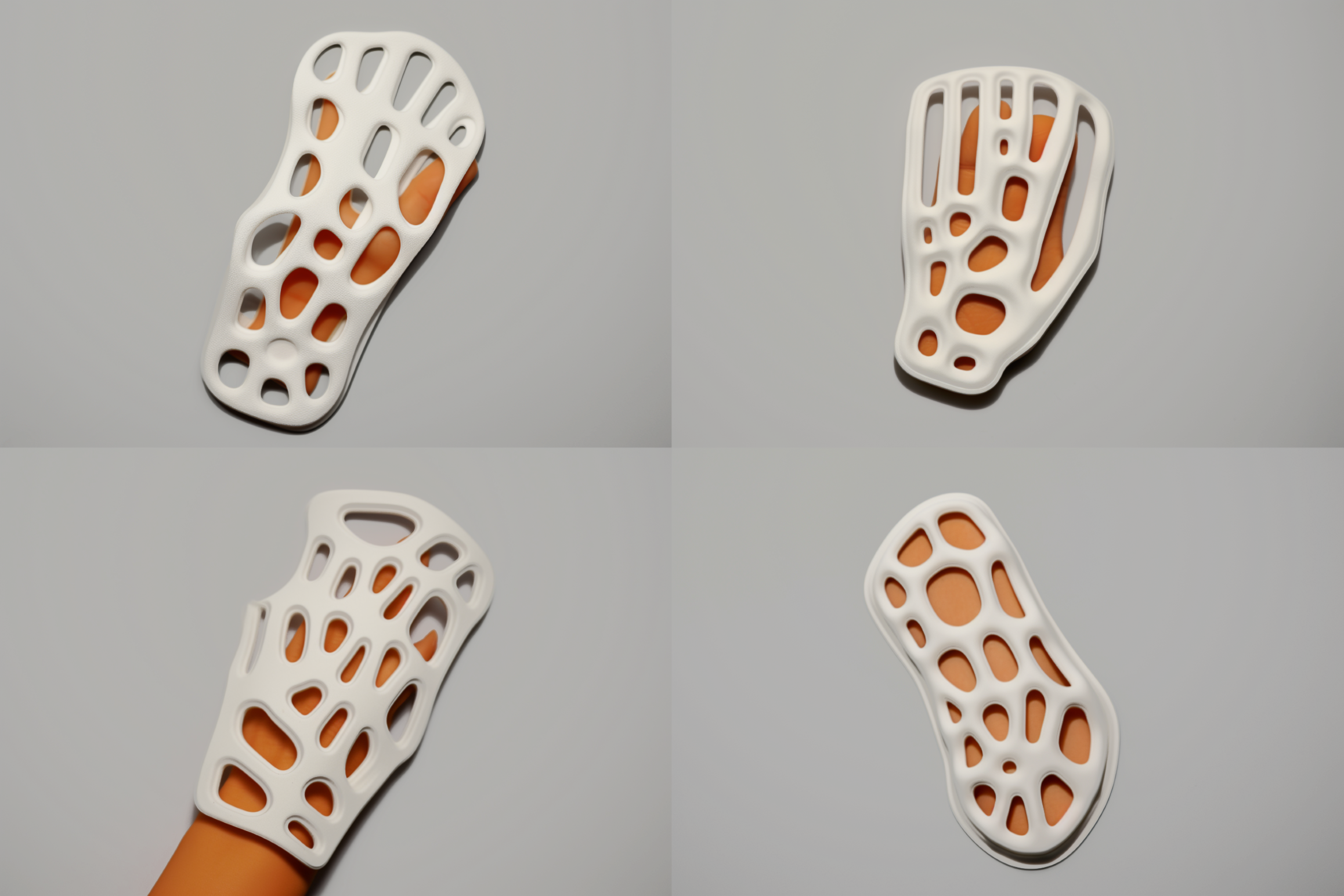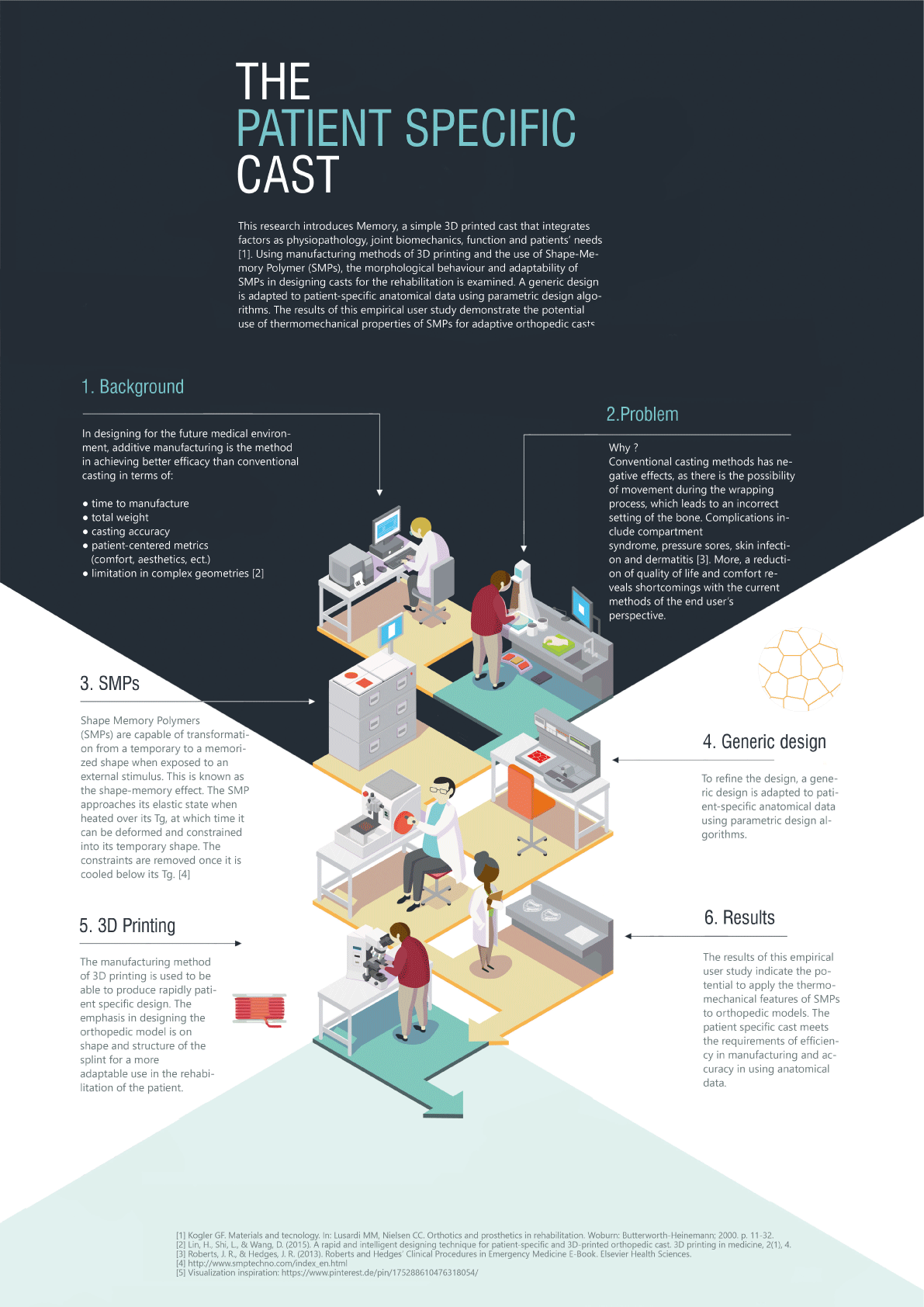A Patient Specifi Cast




This project, conducted during my last year in Industrial Design at TU/e, focused on fabricating orthopedic casts using 3D printed Shape Memory Polymers (SMPs). Departing from the conventional and time-consuming molding process, we proposed a novel approach of 3D printing thermo-mechanical SMPs as flat patches that could be thermo-formed and precisely fitted to specific body parts, such as limbs. Through embodied ideation and parametric pattern generation, we explored the design space, ultimately presenting a wrist-worn prototype that was lightweight, easy to wear, thermo-comforting, and structurally sound. Preliminary user study results informed potential applications and future research directions.
In this project, my role encompassed various responsibilities. As a researcher, I identified a topic of research, designed the research methodology, conducted background research, analyzed qualitative data, and wrote the research paper. Additionally, as a designer, I delved into the design space through embodied ideation and parametric pattern generation, engaged in rapid prototyping, and crafted the final research artifact.
This project was part of Project 2 Design Research, lasting for one semester at Eindhoven University of Technology in 2018.Throughout this project, I further developed my skills in parametric pattern generation, specifically exploring the structural integrity of customized casts by varying thickness, Voronoi pattern cell walls, and deformability in the elastic state. I also considered the integration of high-strength materials, like carbon fibers, to reinforce the geometry while maintaining a lightweight design, albeit at increased cost and complexity.
The technology and realization phase of this research project involved material-driven design using Shape Memory Polymers (SMPs). I refined my 3D printing skills by working with an FDM 3D printer and SMP-55 filaments, preparing files for printing, and manipulating print accuracy through defined parameters such as layer resolution, fill, print speed, layer height, and shell thickness.
The results of this research demonstrate that the proposed process can be faster and more cost-effective than existing 3D printing or molding methods. The generative design approach allows for further customization in terms of flexibility and stability. The analysis of data from the generative design process reveals important design implications. The main contributions of this work are twofold: 1) the fabrication process of thermo-forming printed flat orthopedic casts based on SMPs, which offers increased speed and cost efficiency compared to traditional methods, and 2) the parametric design of personalized orthopedic casts that are lightweight, easy to wear, thermo-comforting, and still offer reinforcement to the applied region.
Creation 2018
Duration 1 semester
Individual project
